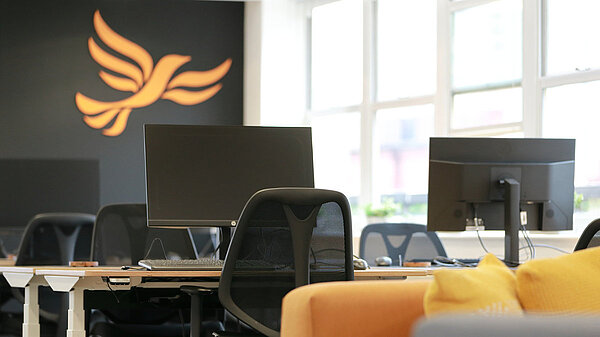Liberal Democrats demand Chancellor rule out £10bn stealth tax grab
EMBARGO: Immediate Release
Extending until the end of this decade the income tax and national insurance threshold freezes put in place by the last Conservative Government would equate to an estimated £10.4 billion stealth tax grab by the Chancellor, analysis by the House of Commons Library commissioned by the Liberal Democrats reveals.
It comes as the party calls on Rachel Reeves to rule out extending the threshold freeze ahead of the Budget. The stealth tax was first put in place by the Conservative party in 2022, and the Government has previously committed to ending the policy in 2027/28. However, in recent weeks, ministers seem to have rowed back on that commitment, refusing to reaffirm this pledge and leading to speculation that stealth taxes could be extended.
If the freeze was to be extended it would result in around 1.3 million more people either dragged into paying income tax or having to pay the higher 40p rate of income tax. London and the South East would be the worst affected regions, with approximately 170,000 and 200,000 people respectively being impacted by 2029/30.
It would leave the average taxpayer an estimated £285 out of pocket by the end of the decade as a result of the freeze extension to income tax and NICs. London and the South East again would be the worst affected areas, with people losing out on around £350 and £320 respectively over the two years. The Treasury would take home an estimated additional £3.4 billion in 2028/29 and then £7 billion in 2029/30 as a result.
The Liberal Democrats have called on the Chancellor to stick to her pledge and rule out extending stealth taxes ahead of the Budget, pointing out that she previously described the policy as something that would “hurt working people” and “take more money out of their payslips”.
The party said that “ripping yet more of people’s hard earned money out of their pockets” was not the change that people were crying out for.
Liberal Democrat Leader Ed Davey said:
“Rachel Reeves must stick to her word and rule out extending these stealth taxes ahead of the Budget. We must draw a line in the sand. To ask people to fork out again for the Conservatives’ economic mismanagement and this Labour government’s failure to clean it up is simply wrong.
“Ripping yet more of people’s hard earned money out of their pockets is certainly not the change that people are crying out for. This Government needs to be tearing up the Conservatives’ economic playbook, not copying it.
“Instead of going back for more, the Government should be taking up Liberal Democrat ideas that we have been discussing at our conference. Proposals like halving people’s energy bills and getting the growth needed to rebuild our public services by striking a truly ambitious deal with Europe. Without it the Government's endless cycle of tax grabs will continue.”
ENDS
Notes to Editors:
First reported by the Times here.
The full analysis from the House of Commons Library can be found here.
The Library’s fiscal estimates are based on the effects on personal taxes (income tax and NICs) and direct changes to benefit receipts that result from household incomes moving across eligibility thresholds.
In her October 2024 Budget speech, the Chancellor said: “Having considered this issue closely… have come to the conclusion…that extending the threshold freeze… would hurt working people. It would take more money out of their payslips.” The full speech can be found here.

